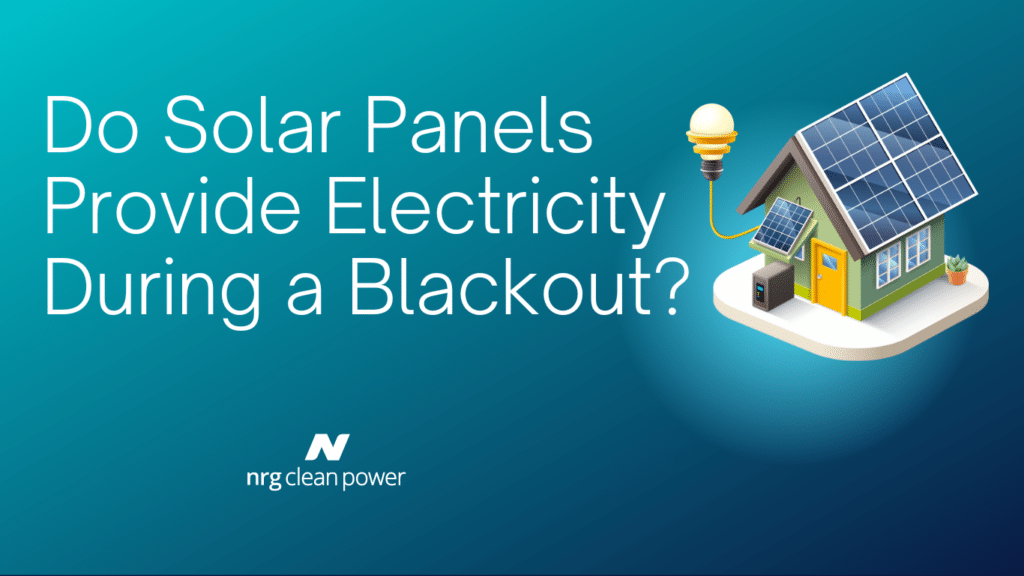
Short Answer: Standard grid-tied solar panels do not provide electricity during a blackout. However, with the addition of a battery storage system or a hybrid inverter, your solar panels can continue to power your home during an outage.
Detailed Explanation
Standard Grid-Tied Solar Systems
Most residential solar systems are grid-tied, meaning they are connected to the utility grid. Here’s how they work:
- Energy Production: Solar panels generate electricity when exposed to sunlight.
- Grid Connection: Excess electricity produced by the panels is fed back into the grid, and the homeowner receives credits or compensation.
- Power Consumption: During times when the solar panels aren’t producing enough electricity (e.g., at night), the home draws power from the grid.
During a blackout: In a standard grid-tied system, solar panels automatically shut down during a blackout. This safety feature, called anti-islanding, protects utility workers who might be repairing the grid. If the solar system continues to feed power into the grid during a blackout, it could pose a serious hazard.
Solar Systems with Battery Storage
To keep your solar panels functioning during a blackout, you need a battery storage system. Here’s how it works:
- Energy Storage: A battery storage system stores excess energy generated by your solar panels.
- Backup Power: During a blackout, the stored energy in the battery can be used to power your home.
Benefits:
- Uninterrupted Power: With a battery, you have a backup power source during outages.
- Energy Independence: Reduces reliance on the grid and provides greater energy security.
- Cost Savings: Use stored energy during peak hours when electricity rates are higher, saving on utility bills.
Popular Battery Options:
- Tesla Powerwall: Known for its high capacity and efficiency, the Tesla Powerwall is a popular choice for solar battery storage.
- LG Chem RESU: Another reliable option with different capacity choices to fit various needs.
- Enphase Encharge: Known for its modular design, allowing for flexible installation and scalability.
Hybrid Solar Systems
A hybrid solar system combines the features of a grid-tied system with battery storage. Here’s how it operates:
- Dual Functionality: The system can draw power from the grid, solar panels, or battery storage.
- Smart Inverters: Hybrid inverters manage the flow of electricity between the solar panels, battery, and grid.
During a blackout: The system automatically switches to battery power, ensuring that your home remains powered.
Considerations for Continuous Power Supply
To ensure your solar panels provide electricity during a blackout, consider the following:
- Battery Capacity: Choose a battery with sufficient capacity to meet your home’s energy needs during outages.
- System Configuration: Ensure your solar system is configured to prioritize critical loads, such as refrigerators, medical equipment, and lighting.
- Professional Installation: Work with a certified solar installer to design and install a system that meets your specific needs and complies with local regulations.
FAQs
Q: Can I use my existing solar system during a blackout? A: If you have a standard grid-tied system, it will not provide power during a blackout. Adding a battery storage system or upgrading to a hybrid system will enable continuous power supply.
Q: How much does it cost to add a battery to my solar system? A: The cost varies depending on the type and capacity of the battery. On average, adding a battery storage system can range from $7,000 to $14,000, including installation.
Q: How long can a solar battery power my home during a blackout? A: The duration depends on the battery capacity and your energy consumption. A typical home battery can provide power for several hours to a few days, depending on usage and the size of the battery.
